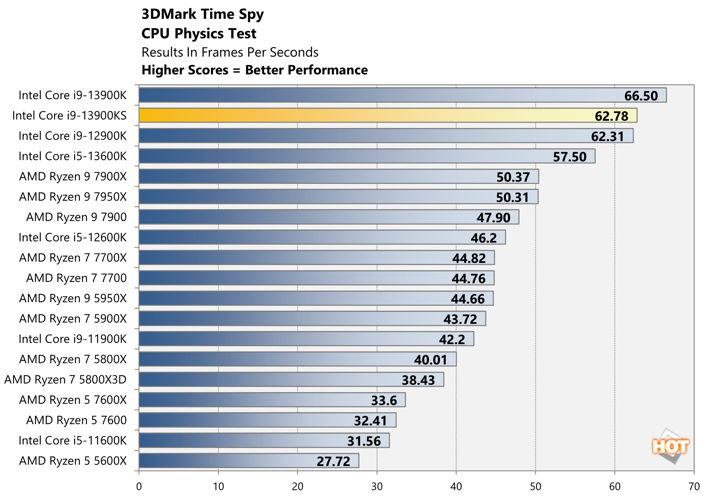Intel Core i9-13900KS 6GHz CPU Benchmarks: Breaking Records
This increase in performance comes at a $110 price premium over the existing Core i9-13900K, putting the MSRP of the 13900KS at $699. However, finding one of these 6GHz processors at MSRP may be challenging at first, as the CPU is currently listed at $70 over MSRP on Amazon. Fortunately, we were able to get our hands on one of these puppies thanks to our friends at Falcon Northwest, and we have some initial performance numbers to share.
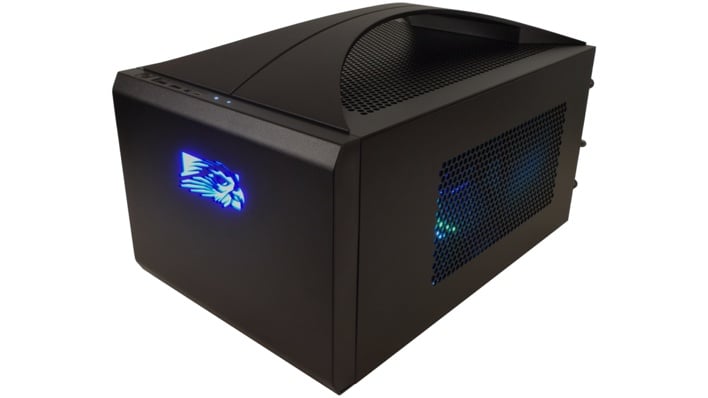
When launching programs, we saw a few of the P-cores in the i9-13900KS jump up to that magic 6GHz number, but sustaining that number likely won't be possible without top-shelf cooling. Under sustained load, the CPU temperatures quickly climbed to 100°C and the P-cores mostly hovered around 5.6GHz, often dipping down to 5.5GHz. The water cooler, radiator, and fans in this little rig do their best to keep up, but the i9-13900KS may be able to sustain higher frequencies in a setup with higher cooling capacity.
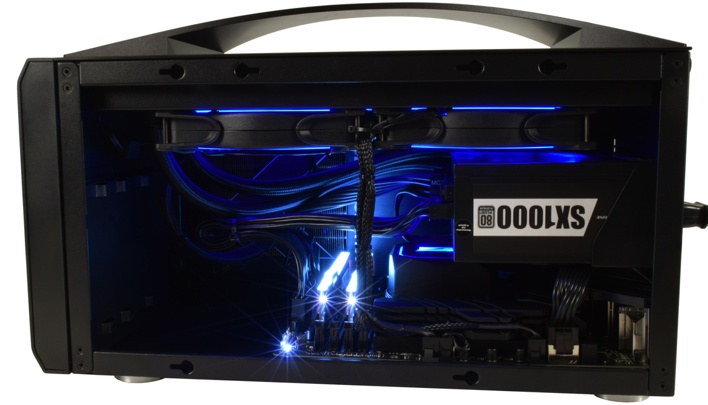
Geekbench v5.4.1 CPU Benchmark
In the GeekBench tests, we're stressing only the CPU cores in a system (not the graphics card/GPU), with both single and multi-threaded workloads. The tests are comprised of encryption processing, image compression, HTML5 parsing, physics calculations and other general purpose compute processing workloads.
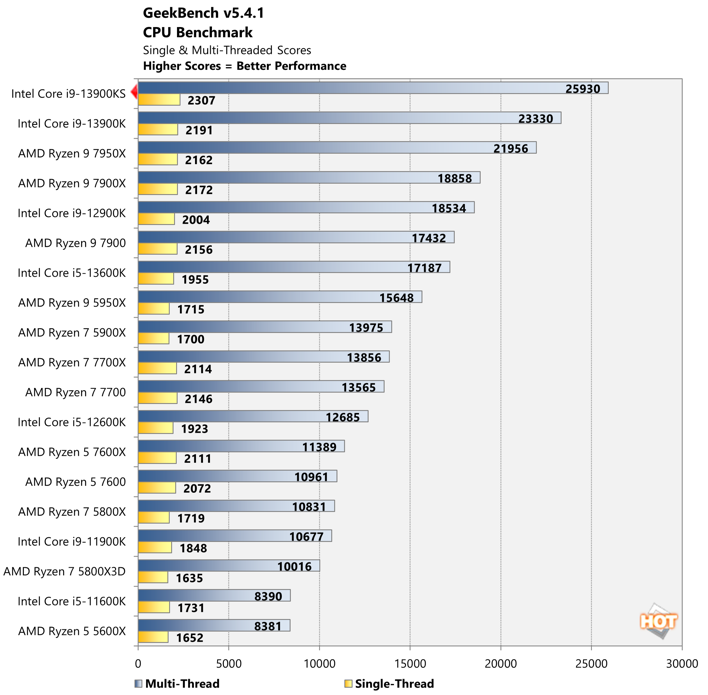
Here we have numbers from the Speedometer 2.0 tests available at browserbench.org. The Speedometer Benchmark Suite uses a wide array of latency and throughput benchmarks to evaluate web application performance, then tabulates all the individual results into a final score. This benchmarks measures performance of an array of browser-based technologies used on modern, rich web applications. Scores in this benchmark are an indicator of the performance users would see when browsing the web and running advanced web apps. All of the systems were tested using the latest version of Microsoft's Edge browser, with default browser settings, on a clean, fully-updated install of Windows 11.
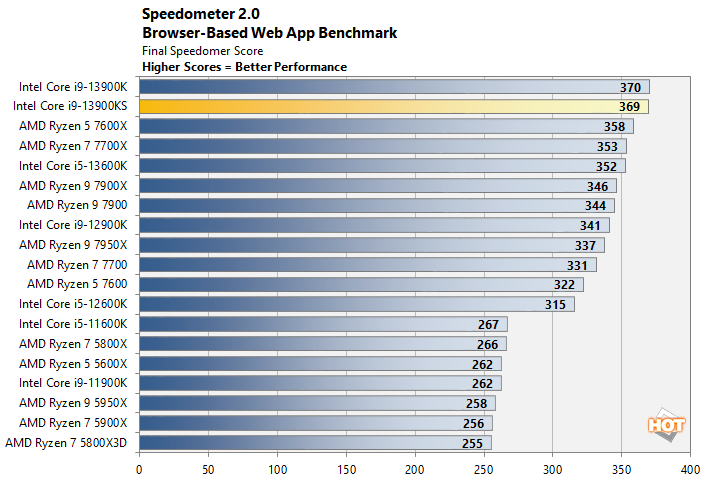
Cinebench is a rendering performance test based on Maxon's Cinema 4D, which is a 3D rendering and animation tool suite used by animation houses and producers like Sony Animation and many others. It's very demanding on system processor resources, and it can utilize any number of threads, which make it an excellent gauge of computational throughput. This is a multi-threaded, multi-processor aware benchmark that renders and animates 3D scenes and tracks the length of the entire process. The rate at which each test system was able to render the entire scene is represented in the graph below.
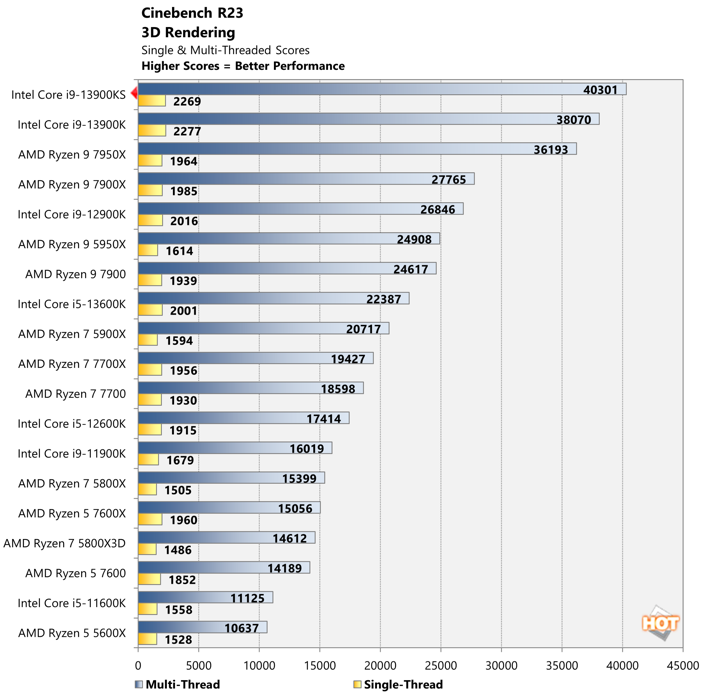
Next up, we have some full-system testing with PCMark. We're reporting all test results from the PCMark 10 benchmark suite, including the Essentials, Productivity, Digital Content Creation and and total PCMark score. The Essentials test covers workloads like web browsing, video conferencing and app start-up times, while Productivity tests everyday office apps from spreadsheets to word processing. Finally, the Digital Content Creation test evaluates performance of a machine with respect to photo and video editing, as well as rendering and visualization.
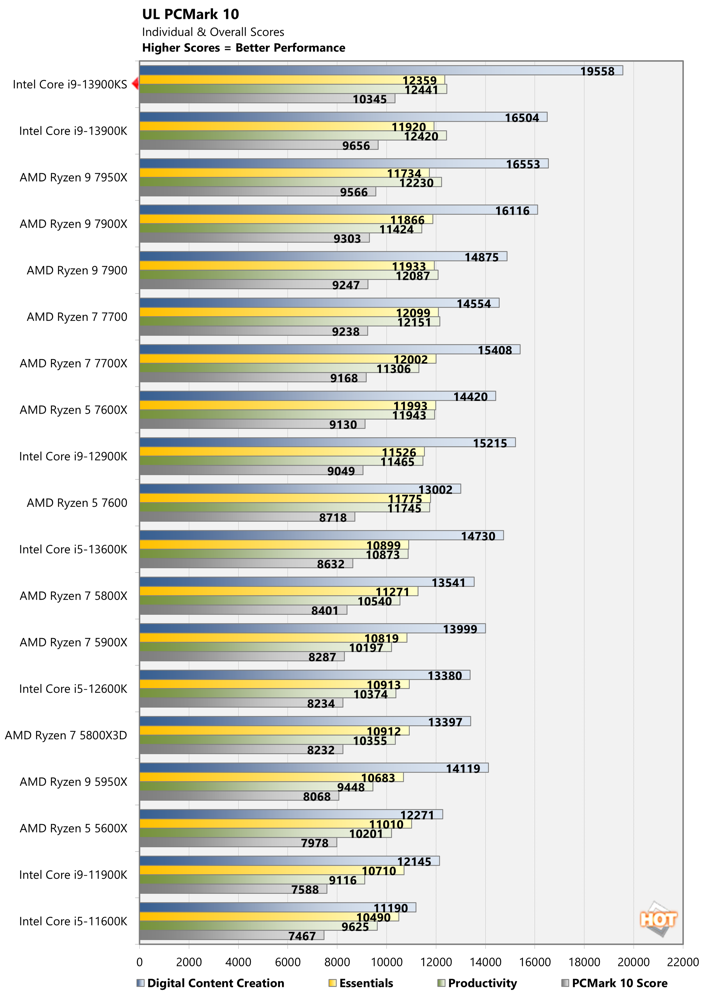
This final test is a little bit academic, because there are very few (if any) games that use multi-threaded physics in the way that this test simulates. As such, this test will scale to high numbers of cores, and it favors Intel's architectures somewhat. AMD's CPUs underperform in this benchmark compared to their real-world game performance.
